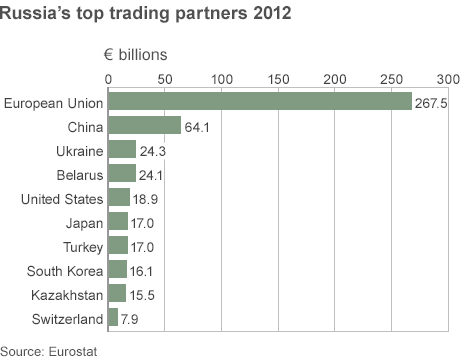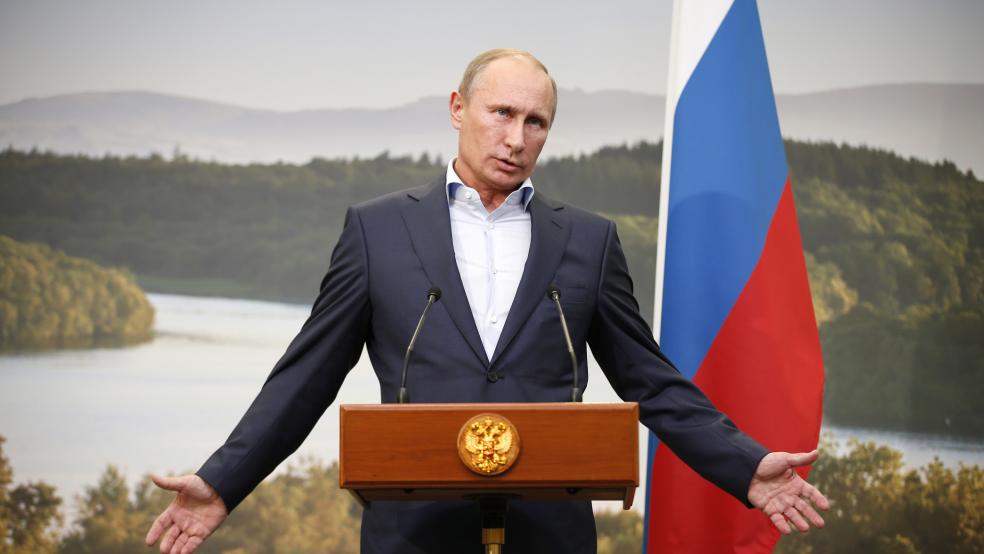The Ukrainian crisis cooled slightly today, with diplomats from the United States and Russia meeting face-to-face in Paris. But progress was negligible; U.S. Secretary of State John Kerry demanded Russian troops return to their bases in Crimea, while Russian Foreign Minister Sergei Lavrov refused to do so.
Still, Kerry hinted that the crisis was entering the dialogue phase, and that threats by both sides would stop.
Related: Russian Ties to Ukraine Go Much Deeper than Gas
“It's very hard to make honest agreements that will help the Ukrainian people stabilize the situation in an atmosphere of threats and ultimatums," he said.
At the same time, Russian troops cemented their control of Crimea, demanding that U.N. special envoy Robert H. Serry leave the island. Serry refused, but the incident shows that Russia essentially has control of the peninsula.
It now appears that the crisis is at a crossroad, and there are three possible paths forward.
Option One: Russia could withdraw troops from Crimea; allow a U.N. fact-finding mission to determine if Russians in Ukraine were in danger, and wait for new elections in the spring.
Option Two: Russia invades eastern Ukraine, where there are many ethnic Russians and Ukrainians who speak Russian. This would prompt sanctions from not just the United States, but likely from Europe as well.
Related: Ukraine's 'Eastern Spring' Has a Chance to Blossom
Option Three: Russia keeps its troops in Crimea, holding it as a de facto Russian territory. Russian President Vladimir Putin uses the peninsula as a bargaining chip in negotiations.
Given these three courses of action, one country is at a clear disadvantage, and it’s not the United States. According to Edward Goldberg, a professor at Baruch College and the New York University Center for Global Affairs, Putin has backed himself into a corner.
“It was amazing to me that the press interpreted [Putin’s Tuesday press conference] as a lot of bravado. I saw it as someone who was under a lot of pressure. The rat statement is not one a rational leader needs to make to move forward. They are now realizing that maybe it was an overstep.”
Money Rules All
Putin projects himself as the strongman in Russia, but according to reports, he serves at the pleasure of the oligarchs--Russia’s superrich that made hundreds of billions in the energy business. On Monday, those oligarchs lost a significant chunk of their fortune.
SLIDESHOW: 35 Intense Photos of the Ukraine Protests
Wall Street punished Russia for creating instability, sending stocks in Russian companies down nearly 13 percent Monday, or the equivalent of 2,612 Dow points. Shares in Gazprom, the state-owned energy giant that enriched many of Moscow’s ruling class, tracked with the broader market, falling 13 percent. The ruble also got hammered on currency markets, forcing the Russian Central Bank to raise interest rates by 1.5 percent.
This drop is part of a broader trend. According to market data firm MSCI, the Russian market is down 59 percent, in U.S. dollar terms, from highs reached in 2008. It’s a staggering loss of wealth, and Putin’s decision to invade Ukraine made it worse.
At the same time, the reality of the impact of economic sanctions from European countries set in, Goldberg said.
“Forget the gas dependency,” Goldberg said, referring to European dependence on Russian energy. “Europe has tremendous investments in Russia. Our trade with Russia is $40 billion. It’s basically nothing. Europe’s is 10 times that.”
It’s actually larger than that. Check out the chart below.

Goldberg said Putin’s decision to invade shows that he doesn’t understand globalization and Russia’s role in, and dependence on, the world economy.
“Russia is the country that denied globalization under Putin, but it is now trapped by it,” he said. “Forty percent of your budget is tied to selling to Europe, you’re tied to only having one customer. They’re as economically trapped as the Europeans.”
Goldberg added that Russia’s explanation for its actions -- protecting Russians outside its borders -- is also hard to justify in the long-term.
“There are so many things on this chess board that it’s amazing to me all the pieces being played,” he said. “You have Russia’s piece, and I think Putin overstepped. Their justification gave them the right to invade Brighton Beach, Brooklyn, where there are 300,000 Russian speakers.”
Top Reads from the Fiscal Times:





